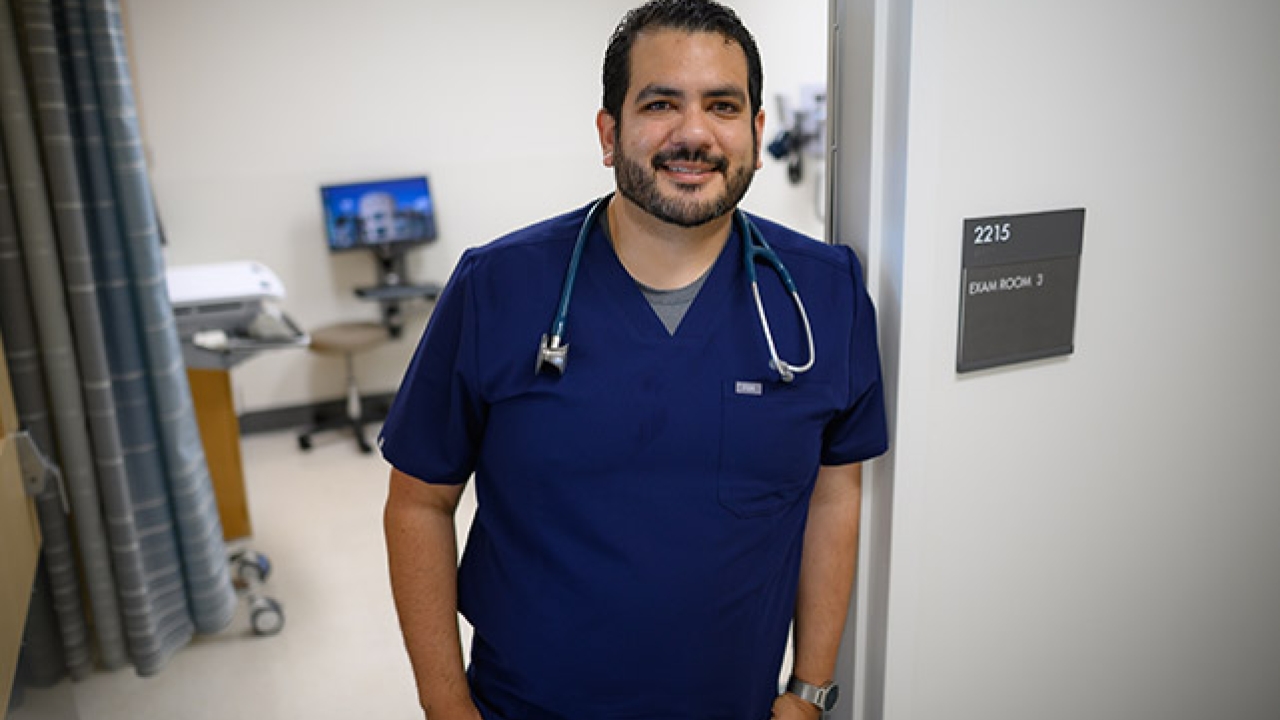
Improving nursing care for transgender patients
There’s an Ag for That
This article is part of an ongoing series about the impact UC Davis alumni are making in our world.
As a registered nurse, Matthew Vega ’11, MS ’20 is on a mission. He wants to improve nursing care for transgender patients, who suffer from health care disparities including higher rates of mental health problems and suicide.
“Because of their negative health care experiences, transgender patients tend to delay care and not disclose they’re transgender, which leads to poor health outcomes,” said Vega.
Vega learned of these challenges while caring for transgender patients, and he researched them further while earning his master’s degree at the Betty Irene Moore School of Nursing at UC Davis.
Transgender Health Disparities
According to a 2015 report published by the National Center for Transgender Equality*, transgender patients experienced the following:
49% seriously contemplated suicide; 40% attempted suicide
33% had a negative health care experience
33% delayed seeking care
31% said their health care provider was unaware of their transgender status
20% were turned away by a doctor
“As my thesis project, I wanted to discover what nurses could do to help reduce these disparities,” said Vega, who currently works at the Sacramento VA Medical Center.
Searching the literature, Vega found little transgender-specific health education for nurses. So he embarked upon a painstaking effort to create materials, drawing from standards of care established by the World Professional Association for Transgender Health and other sources.
Much of his work is synthesized into a one-hour training module that nurses can view and put to use on the job. It provides an overview of transgender care—including the terminology of sexual identity and the particular risks and disparities transgender populations face—as well as the many different surgical procedures, hormone treatments, and resources to help transgender patients.
Vega sees his work, currently being reviewed by a panel of experts, peers and patients, as a good start to a journey that could one day help shape national guidelines for transgender patient nursing education.
His mentors at the Betty Irene Moore School of Nursing agree.
“Matt’s thesis reflects dedication and passion to improving nursing care for transgender patients,” said Associate Professor Elena Siegel, who served as Vega’s thesis chair. “It provides a much-needed scholarly foundation for continuing this important work to advance educational opportunities for nurses caring for transgender patients.”
Filling a critical need
Vega’s passion for improving transgender patient care dates back to his earliest experiences in health care.
“Years ago, I volunteered at an AIDS hospice that cared for mostly LGBT patients. One of our clients was a transgender woman. She was kind and strong and an incredible person,” Vega said.
And the staff provided impeccable care for her—high quality, compassionate and respectful. New to the field, Vega assumed this was the norm.
“It would be amazing to see transgender health become a priority for nurses across the nation.”
“In my more naïve and younger mind, I believed that quality of care would be similar everywhere,” Vega said. “But one day she told me that, while the care there was exceptional, it also was very much the exception.” It pained him to hear about the mistreatment and even cruelty she had experienced in other settings.
As Vega embarked on his nursing career, he began to understand what she was talking about.
“I became aware of the huge health disparities, and I felt a call to action,” said Vega.
With a fresh master’s degree in hand, Vega is committed to refining the nursing education materials he’s started—and get them out into the field. He sees the first and most immediate use in primary care.
“Primary care clinics tend to be the central hub for the majority of care and can act as a gatekeeper for gender-affirming treatments,” said Vega. “In this setting, nurses can be wonderful advocates, allies, and educators. They can really make a huge impact on helping transgender people achieve their health goals as well as gender expression goals.”
Possibilities for expansion include more unit-specific training—for example, for post-surgical care—as well as a curriculum for nursing schools. Vega is considering developing such options as the basis of work toward a doctorate.
“Improved education is potentially a very big part of how nurses can improve transgender heath care and outcomes,” said Vega. “It would be amazing to see transgender health become a priority for nurses across the nation.”
*Citations
James, S. E., Herman, J. L., Rankin, S., Keisling, M., Mottet, L., & Anafi, M. (2016). The Report of the 2015 U.S. Transgender Survey. Washington, DC: National Center for Transgender Equality.
